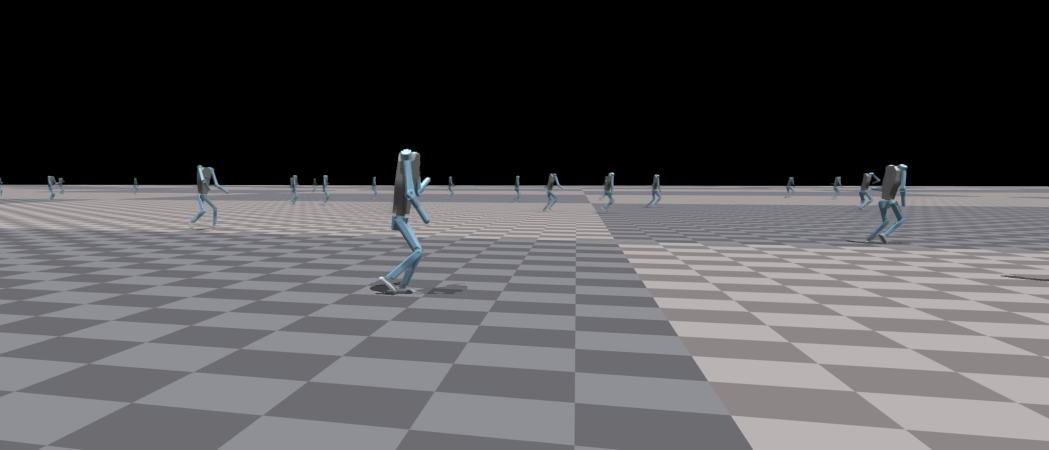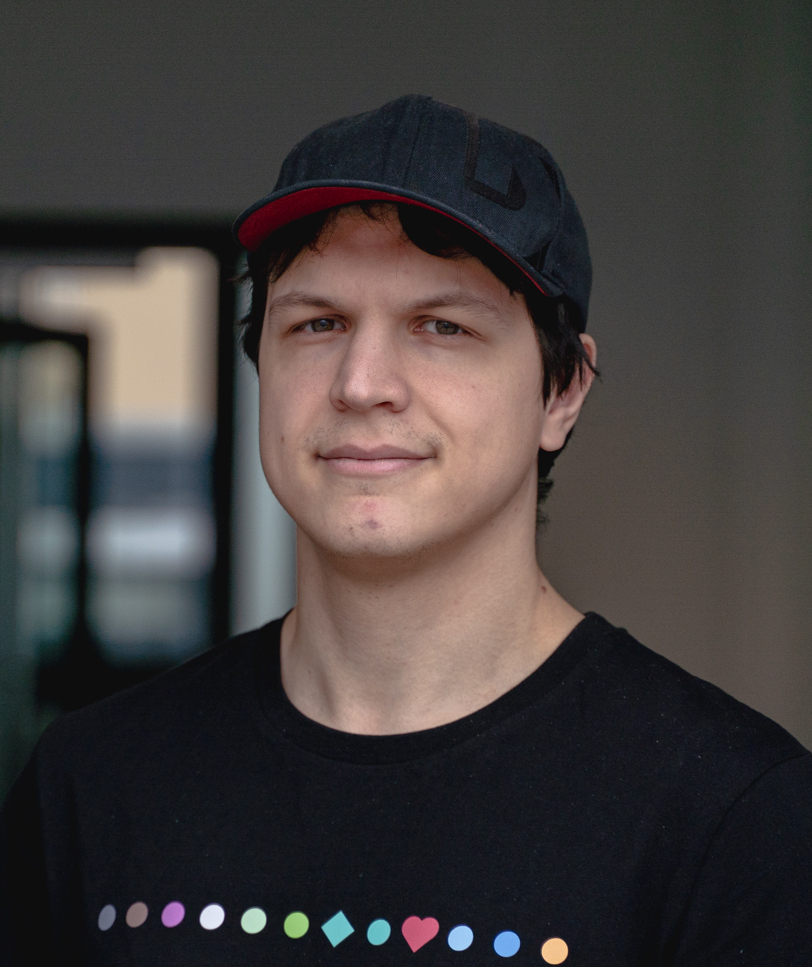Systems Architecture Research Group
As part of the Laboratory for Digitalisation, the Systems Architecture Research Group does research on modern, free and open architectures for industrial embedded systems with a strong focus on safety- and mixed-critical systems.
In parallel, the Software Engineering Group of Digitalisation Laboratory develops quantitative techniques that support safety certification efforts for OSS components when being used in safety-critical environments.
The Systems Architecture Research Group has profound experience with the following processor architectures:
- ARM (32/64 Bit)
- PowerPC
- RISC-V (32/64 Bit)
- x86 (Intel, AMD)
Quantum/Classic Co-Design: System-Level Integration of Quantum Accelerators
We investigate and develop system-level solutions for integrating quantum accelerators into classical computing environments. Our expertise lies in building system and hardware architectures that enable real-time, low-latency communication between host systems and modular quantum processing units.
We focus on the design of operating system–level abstractions, such as a Quantum Abstraction Layer (QAL), and user-space frameworks that support both high-level quantum programming models and low-level control paths. This layered approach ensures flexibility across diverse quantum hardware backends and allows for scalable, heterogeneous system architectures.
Early-stage designs are explored and evaluated in emulated environments, following a Hardware/Software Co-Design approach. To bridge the gap towards realistic deployments, we also leverage FPGA-based validation platforms that allow for cycle-accurate system behavior and timing-aware refinement. These efforts lay the groundwork for future quantum-classical systems designed for practical, high-performance applications.
Projects
Tailored Hardware/Software Stacks: Precisely Fitting Industrial Architectures
The Systems Architecture Research Group works on tailored architectural solutions for industrial environments (such as Static Hardware Partitioning or Embedded Virtualisation) with a strong focus on Hardware/Software-Codesign: Besides taking top-down approaches (i.e., writing software for the hardware), we also take a bottom-up approach (i.e., the sight from the hardware's perspective on the software), and design, conceptualise, and implement custom hardware extensions for computer architectures.
The Group especially focuses on free and open Instruction Set Architectures, such as RISC-V, where we use FPGAs to allow for cycle-accurate simulations of custom hardware modifications.
Projects
Embedded Virtualisation
While hypervisors are often optimised for high throughput and optimal performance in the desktop and enterprise segment, virtualisation solutions for real-time constrained embedded systems significantly differ: the architecture needs to target low latencies, deterministic computation cycles and maintaining real-time capabilities.
Static hardware partitioning is a special case of embedded virtualisation that exclusively assigns hardware resources to isolated computing domains that execute on the same logical platform. It makes the assumption that available resources are greater or equal than the required computational power: there is no need for sharing any resource of the system. This is already the case in numerous industrial appliances, as multi-core CPUs conquered embedded markets.
Static hardware partitioning means that the assignment of physical resources to computing domains is static, that is, the assignment does not dynamically change over time. Partitioning implies strong isolation across partitions or domains. Virtualisation extensions of modern CPUs can be exploited to create such static and distinct execution environments. However, static hardware partitioning does not yet give guarantees on implementing a real-time capable system architecture. If it is possible to implement static hardware partitioning upon virtualisation extensions of modern architectures with no (software-induced) hypervisor resp. virtual machine monitor (VMM) overhead during system operation, then the underlying real-time guarantees of the execution platform (that must exist in any case) are inherited by execution domains (i.e., the guests) by design and without any further software interaction. This architectural approach is implemented by the Open-Source Linux-based partitioning hypervisor Jailhouse. Group members of the Systems Architecture Research Group actively support the development of Jailhouse.
Projects
Running Projects
Finished Projects
People
Lead
Master Students
Alumni
Theses
Open
Running
Enhancing the Quantum Accelerator Development Environment
State: running
Supervisor: Ralf Ramsauer
Project: SysQC
Student: Ernyou Lim
FPGA Prototyping of a Quantum Accelerator Model
State: running
Supervisor: Ralf Ramsauer
Project: SysQC
Student: Lukas Landgraf
Finished
Comparative Analysis of Tracing Mechanisms in Linux for Real-Time Systems
State: finished
Supervisor: Benno Bielmeier
Student: Alexander Letaief (submitted: 21. Feb 2025)
Tailoring CPUs: Custom modifications of the Rocket-Chip Core in Chisel
State: finished
Supervisor: Ralf Ramsauer
Student: Felix Wagner (submitted: 10. Feb 2025)
Reduction of Virtual Memory Management Overhead: Exploration of Hardware Mechanisms for Second-Level Paging
State: finished
Supervisor: Ralf Ramsauer
Student: Lukas Landgraf (submitted: 10. Feb 2025)
Formal Verification of Real-Time Systems Using Model-Based Quantification
State: finished
Supervisor: Wolfgang Mauerer, Ralf Ramsauer
Student: Benno Bielmeier (submitted: 10. Feb 2025)
Human Gait through Reinforcement Learning in Simulated Agents

State: finished
Supervisor: Benno Bielmeier
Student: Jonas Schmidt (submitted: 16. Jul 2024)
Entwicklung eines Linux-Kernel-Moduls zum transparenten Tunneln von CAN Schnittstellen über IP-Netzwerke
State: finished
Supervisor: Ralf Ramsauer
Student: Matthias Unterrainer (submitted: 01. Jul 2024)
Automatisierte Übungserfassung und Wiederholungserkennung mithilfe einer Smartwatch
State: finished
Supervisor: Ralf Ramsauer
Student: Markus Schottenhammer (submitted: 13. Mar 2024)
Integration of optical computation in processor architectures for automotive use cases
State: finished
Supervisor: Wolfgang Mauerer, Ralf Ramsauer
Student: Florian Schulenberg (submitted: 01. Mar 2024)
Quantum Random Number Generation as a Service
State: finished
Supervisor: Stefan Huber
Student: Simon Rothe
Refinement of a QRNG Linux Kernel Module and development of an API for Open Access of Quantum Random Numbers
Socio-Technical Distillation -- From Micro-Level Responsibilities to Macro-Level Architecture Views
State: finished
Supervisor: Ralf Ramsauer, Wolfgang Mauerer
Student: Pia Eichinger (submitted: 30. Sep 2022)
Kernel-Assisted Copy-on-Write Snapshots for Main-Memory HTAP Databases
State: finished
Supervisor: Ralf Ramsauer
Student: Lucas Wolf (submitted: 15. Sep 2022)
Snapshots in Linux Userspace -- Design and Application of a Copy-on-Write Memory Allocation Scheme
State: finished
Supervisor: Ralf Ramsauer
Student: Mario Mintel (submitted: 08. Aug 2022)
Maintainers Expectations vs. Maintainers Reality
State: finished
Supervisor: Ralf Ramsauer
Student: Pia Eichinger (submitted: 30. Sep 2020)
Diese herausragende Arbeit wurde bereits einem breiteren akademischen und industriellen Publikum vorgestellt.
Systemkonsolidierung einer industriellen Robotersteuerung zu einem System gemischter Kritikalitäten mit Standard IT-Komponenten
State: finished
Supervisor: Ralf Ramsauer
Student: Tobias Teubl (submitted: 17. Sep 2020)
Analysis of Ignored Patches in the Linux Kernel Development
State: finished
Supervisor: Ralf Ramsauer
Student: Sebastian Duda (submitted: 20. Dec 2019)
In Kooperation mit der Friedrich-Alexander Universität Erlangen
Systemkonsolidierung eines Industrieroboters mit Hilfe des safety-kritischen Hypervisors Jailhouse
State: finished
Supervisor: Ralf Ramsauer
Student: Mario Mintel (submitted: 13. Sep 2019)
How Spectre Mitigations Affect Real-Time Capabilities of Virtualized Mixed-Criticality Systems on Modern AMD Processors
State: finished
Supervisor: Ralf Ramsauer
Student: Andrej Utz (submitted: 09. Aug 2019)
Portierung eines Echtzeitbetriebssystems in eine virtualisierte Mixed-Criticality Umgebung
State: finished
Supervisor: Ralf Ramsauer
Student: Andreas Kölbl (submitted: 05. May 2017)
Central Publications
2025
-
GI
Workshop
Towards Real-World System-Level Integration of Quantum Accelerators: A Hardware/Software Co-Design Approach -
Proceedings of the GI Quantum Computing Workshop2025.
PDF 10.18420/inf2025_158 [BibTex]
-
IEEE
Conference
From Tracepoints to Timeliness: A Semi-Markov Framework for Predictive Runtime Analysis -
IEEE 31th International Conference on Embedded and Real-Time Computing Systems and Applications (RTCSA)2025.
PDF 10.1109/RTCSA66114.2025.00021 Reproduction Package [BibTex]
- Open-Source-Wissenschaftler bereiten Software für das Quantencomputing vor
-
Linux-Magazin2025.
URL [BibTex]
-
Preprint
To Appear
IEEE
Towards System-Level Quantum-Accelerator Integration -
IEEE WIHPQC@QCE2025.
PDF 2507.19212 [BibTex]
2022
-
OSSJ
Conference
Semi-Formal Verification of Embedded Linux Systems Using Trace-Based Models -
Open Source Summig Japan (OSSJ)2022.
PDF [BibTex]
-
Conference
Static Hardware Partitioning on RISC-V - Shortcomings, Limitations, and Prospects -
8th IEEE World Forum on Internet of Things (IEEE WFIoT2022)2022.
PDF 10.1109/WF-IoT54382.2022.10152063 [BibTex]
-
Thesis
Socio-Technical Distillation – From Micro-Level Responsibilities to Macro-Level Architecture Views -
2022.
PDF [BibTex]
- QPU-System Co-Design for Quantum HPC Accelerators
-
Proceedings of the 35th GI/ITG International Conference on the Architecture of Computing SystemsGesellschaft für Informatik2022.
PDF 10.1007/978-3-031-21867-5_7 Reproduction Package [BibTex]
-
FGDB
Applicability of Quantum Computing on Database Query Optimization -
Frühjahrstreffen Fachgruppe Datenbanken in Potsdam (Poster Presentation)2022.
PDF [BibTex]
-
FGBS
Fork à la carte für In-Memory-Datenbanken -
Frühjahrstreffen Fachgruppe Betriebssysteme in Hannover2022.
PDF [BibTex]
2021
-
Conference
Silentium! Run-Analyse-Eradicate the Noise out of the DB/OS Stack -
BTW 2021Gesellschaft für Informatik, Bonn2021.
PDF 10.18420/btw2021-21 Reproduction Package [BibTex]
-
Thesis
OSS Architecture for Mixed-Criticality Systems: A Dual View from a Software and System Engineering Perspective -
PHD thesisLeibniz Universität HannoverHannover: Institutionelles Repositorium der Leibniz Universität Hannover2021.
PDF 10.15488/11722 [BibTex]
-
Under Review
Principles and Practice of Hypervisor-Assisted Real-World Hardware Partitioning -
2021.
[BibTex]
2018
-
ELCE
Spectre and Meltdown vs. Real-Time: How Much do Mitigations Cost? -
Embedded Linux Conference Europe2018.
[BibTex]
-
FGBS
Implementierung gemischt kritischer Systeme durch statische Hardwarepartitionierung -
Frühjahrstreffen Fachgruppe Betriebssysteme in Hannover2018.
[BibTex]
- Meltdown & Spectre — Werden wir alle sterben? Technischer Überblick und Analyse neuester Erkentnisse über ungewolltes Prozessorverhalten
-
2018.
[BibTex]
2017
-
OSPERT
Workshop
B
Look Mum, no VM Exits! (Almost) -
Proceedings of the 13th Annual Workshop on Operating Systems Platforms for Embedded Real-Time Applications (OSPERT '17)2017.
PDF Slides [BibTex]
2016
-
Conference
GPU-Assisted hard real-time processing: Problems and Potentials -
Proc. Embedded World Conference2016.
[BibTex]
2014
-
Journal
Real-Time Android: Achieving determinism and ease of use -
Embedded Wold Conference2014.
PDF [BibTex]
-
Conference
Supershrink Linux – and beyond -
Proc. Embedded World Conference2014.
[BibTex]
2013
-
Magazin
Linux durchleuchtet -
c’t Magazin für Computertechnik, Heise Verlag2013.
[BibTex]
-
Conference
Linux Platform Debugging: It’s not just for Kernel Hackers -
Proc. Embedded World Conference2013.
[BibTex]
-
Magazin
Performance-Analyse mit Perf -
c’t Sonderheft Linux, Heise Verlag2013.
[BibTex]
2012
- Sicherheit von Android-Systemen
-
GI-Edition Lecture Notes in Informatics2012.
[BibTex]
2011
-
Magazin
Am offenen Kern -
c’t Magazin für Computertechnik, Heise Verlag2011.
[BibTex]
2010
-
Magazin
Rundreise durch den Linux-Kernel -
c’t kompakt Linux, Heise Verlag2010.
[BibTex]
2008
-
Conference
Chasing the Penguin: State and Evolution of the Kernel -
Proceedings Linux-Kongress 2008(UpTimes 02/2008), GUUG/Lehmanns2008.
[BibTex]
-
Book
Professional Linux Kernel Architecture -
John Wiley & Sons20089780470343432.
[BibTex]
2003
-
Book
Linux-Kernelarchitektur Konzepte, Strukturen und Algorithmen von Kernel 2.6 -
Hanser20039783446225664.
[BibTex]
1998
-
Magazin
Einführung in den Linux-Kernel -
Linux Magazin, Linux New Media AG1998.
[BibTex]
1997
-
Book
Textverarbeitung mit LATEX 2e [2 epsilon] unter UNIX -
Hanser19979783446189096.
[BibTex]












